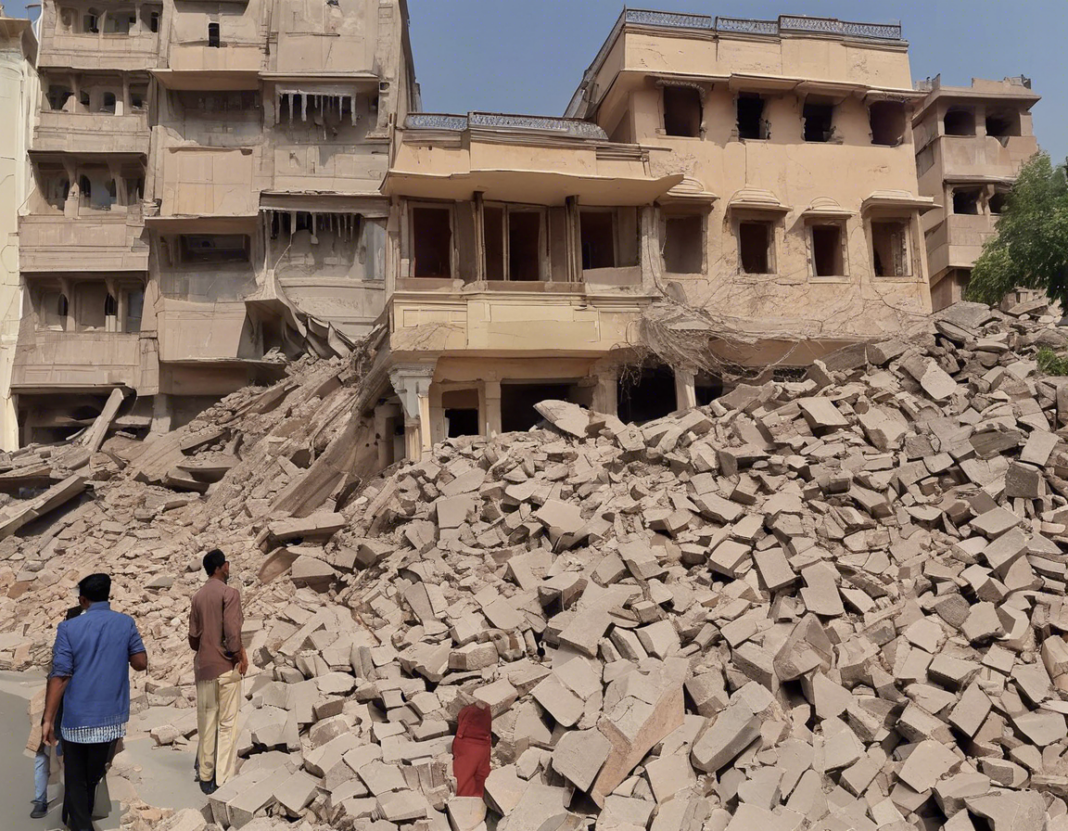An earthquake is a sudden and intense shaking of the ground caused by the movement of rock beneath the Earth’s surface. India, being a seismically active region, is prone to earthquakes due to the Indian plate colliding with the Eurasian plate. On the morning of 17th August 2021, residents of Jaipur, the capital city of Rajasthan, were taken aback by tremors that were felt throughout the city. The earthquake had a magnitude of 4.1 on the Richter scale and its epicenter was in the vicinity of Jaipur.
Understanding Earthquakes
Earthquakes are a result of the release of energy in the Earth’s crust that creates seismic waves. The point on the Earth’s surface directly above the earthquake’s starting point is called the epicenter. The focus of an earthquake is the actual point where the earth ruptures due to tectonic forces. The magnitude of an earthquake is measured using the Richter scale, with each whole number increase indicating a tenfold increase in the amplitude of the seismic waves.
Impact of the Jaipur Earthquake
While the Jaipur earthquake was relatively mild compared to major quakes, it serves as a reminder of the seismic activity prevalent in the region. The tremors were felt by residents across the city, causing a momentary panic as people rushed out of buildings seeking safety. Fortunately, there have been no reports of significant damage or casualties resulting from the earthquake.
Factors Contributing to Earthquake Impact
Several factors influence the impact an earthquake can have on an area:
- Magnitude: The higher the magnitude, the more intense the shaking and potential damage.
- Depth: Shallow earthquakes tend to cause more destruction than deeper ones.
- Distance from Epicenter: Proximity to the epicenter can amplify the effects of an earthquake.
- Building Standards: Structures built to withstand earthquakes fare better during seismic events.
Preparedness and Safety Measures
In light of the recent earthquake activity in Jaipur, it is essential for residents to be aware of safety measures to adopt during such events. Here are some tips to stay safe during an earthquake:
- Drop, Cover, and Hold On: Drop to the ground, take cover under a sturdy piece of furniture, and hold on until the shaking stops.
- Stay Indoors: If you are inside a building, stay there. Most injuries during earthquakes occur when people try to exit buildings during the shaking.
- Stay Away from Windows: Broken glass is a common source of injury during earthquakes. Keep away from windows to prevent injury.
- Have an Emergency Kit: Prepare a kit with essential items such as water, food, first aid supplies, and flashlights in case of emergencies.
- Plan Evacuation Routes: Know the evacuation routes in your area and have a family emergency plan in place.
Frequently Asked Questions (FAQs)
1. How common are earthquakes in Jaipur?
- Jaipur is not located in a highly seismically active zone, but earthquakes can still occur in the region due to its proximity to tectonic plate boundaries.
2. What should I do during an earthquake if I am outdoors?
- If you are outdoors during an earthquake, move to an open area away from buildings, trees, and utility wires. Drop to the ground and cover your head and neck until the shaking stops.
3. Can earthquakes be predicted?
- Earthquakes cannot be predicted with precision. While scientists can forecast the likelihood of an earthquake occurring in a particular region, the exact timing and magnitude remain unpredictable.
4. How can I make my home more earthquake-resistant?
- Securing heavy furniture to walls, reinforcing vulnerable areas of your home, and ensuring that gas lines are properly secured can help make your home more earthquake-resistant.
5. What should I do after an earthquake?
- After an earthquake, check yourself and others for injuries, be prepared for potential aftershocks, and follow safety guidelines provided by local authorities. Avoid using elevators and be cautious of damaged infrastructure.
In conclusion, while the recent earthquake in Jaipur was a reminder of the seismic activity in the region, staying informed, prepared, and knowing how to respond during such events is crucial for personal safety and well-being. By following safety protocols and being aware of earthquake risks, residents can mitigate potential harm and ensure a swift recovery in the aftermath of seismic events.


